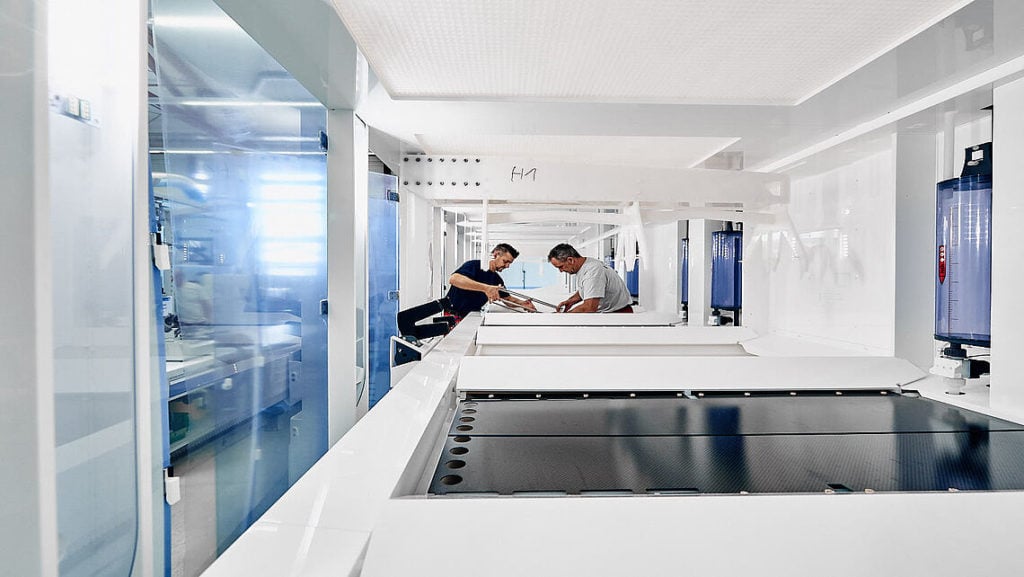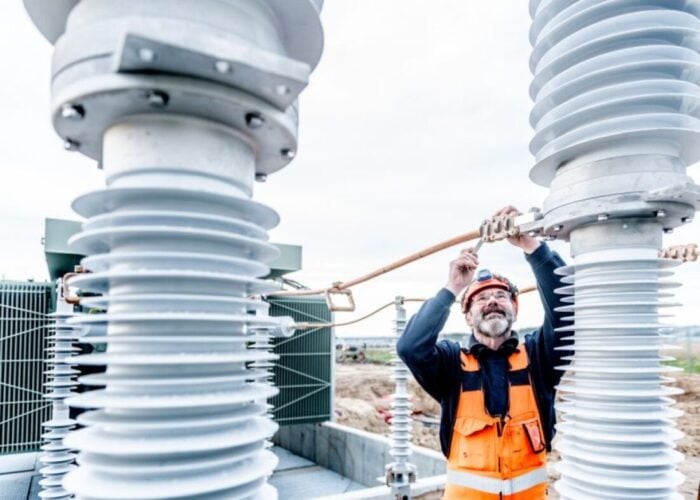
German technology company RENA Technologies has received orders for what it described as “several gigawatts” of solar production capacity in 2023, as the firm looks to return to manufacturing machines for the global solar sector.
The orders were made by companies in the US and India, although RENA did not name those involved in the deal. The German company did note, however, that it would provide its batch and inline etching machines, which are used in the production of solar panels, and that these would be used to facilitate the construction of tunnel oxide passivated contact (TOPCon) and silicon heterojunction technology (HJT) solar cells.
Unlock unlimited access for 12 whole months of distinctive global analysis
Photovoltaics International is now included.
- Regular insight and analysis of the industry’s biggest developments
- In-depth interviews with the industry’s leading figures
- Unlimited digital access to the PV Tech Power journal catalogue
- Unlimited digital access to the Photovoltaics International journal catalogue
- Access to more than 1,000 technical papers
- Discounts on Solar Media’s portfolio of events, in-person and virtual
The company’s sales in the US and India are also notable, as the US looks to realise what the US Energy Information Administration expected to be sustained growth in US solar capacity. Earlier this year, RENA announced that it had started to expand its footprint into India, generating order volumes of more than €20 million (US$21.8 million) between April 2022 and March 2023.
“India is way beyond the state of an emerging market in photovoltaics manufacturing,” said Ulrich Jäger, senior vice-president of sales at RENA in April 2023. “Its manufacturers are going to run state-of-the-art production lines and are serious players in the international photovoltaics industry already.”
Shifting the global balance
The company has developed innovative manufacturing processes for the solar sector, such as its InOxSide Fusion wafer manufacturing process, which uses a combination of acids and alkalis to reduce the need for nitric acid in the wafer production process, lowering production costs.
“We are increasingly receiving feedback that our customers aspire to enhance their sustainability efforts as well as trust in a reliable and long-term safe supply chain with technologically leading partners like RENA,” added Peter Schneiderwind, RENA CEO.
The involvement of a German company in the global solar sector may be encouraging news for those in the solar industry, considering the dominance of China in the sector. According to Wood Mackenzie, between 2023 and 2026 China will own more than 80% of the world’s module manufacturing capacity, and in addition to general concerns about the lopsided nature of any such industry, the global solar sector is increasingly aware of potential labour abuses in the Chinese solar market.
The presence of RENA in particular is striking, considering the company’s apparent cooling of interest in the solar industry. In 2020, the company received its largest-ever order for solar manufacturing machinery, with an Asian firm investing “tens of millions of euros” into RENA machinery with a solar production capacity of 15GW, but just two years later, questions were raised as to its commitment to the solar sector.
In 2022, RENA sold its Chinese business to the Productive Technologies Company (PTC), which is headquartered in Hong Kong, and announced that PTC would develop solar equipment “exclusively for Chinese customers”, but RENA’s latest deals suggest that it is once again keen to invest in the solar sectors of other countries.







